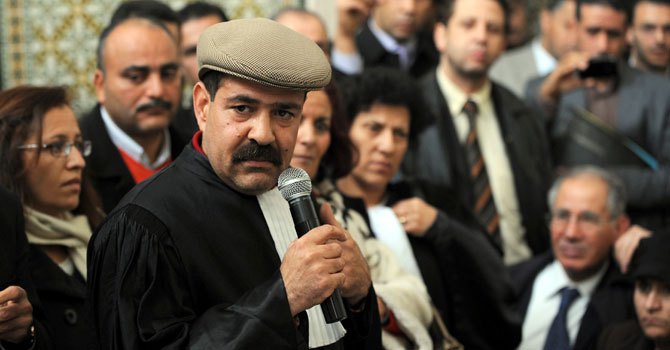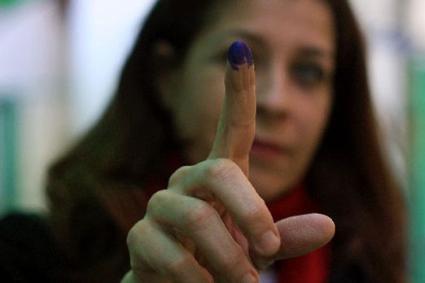
Activists and journalists commemorated the killing of Shaimaa Al-Sabbagh Saturday. Some activists in her hometown in Alexandria brought flowers to the cemetery, as a way of celebrating Valentine’s Day with her.
Others posted to her Facebook account, while several journalists republished a copy of Al-Sabbagh’s last article prior to her death.
This comes as Prosecutor General Hisham Barakat ordered Thursday a media gag in the case, until investigations are complete, state-run media Al-Ahram reported.
“Unfortunately, this case’s gag stated no specific reasons, which I believe are rather political than legal,” Executive Director of the Association of Freedom of Thought and Expression (AFTE) Emad Mubarak told Daily News Egypt Saturday.
Despite the law requiring trials to be made known to the public, it entitles the prosecution to order media gags in order to prevent the release of any type of information that could jeopardise the case, or the suspect’s right to privacy.
On several occasions in the past week, the Qasr Al-Nil prosecution said that the investigation results were expected as soon as security tapes were examined, “within days”. The latest reported development in the case was the alleged identification of Al-Sabbagh’s killer and his detention.
Media reports also suggested that the perpetrator has been identified as a police officer, and that at least a dozen police officers have been called into questioning. A couple of days later, the media gag was imposed.
“I think it violates the right of the public to be informed,” Mubarak added, noting that recently there have been restrictions on the press, especially in legal cases involving state officials.
Khaled El-Balshy, a prominent journalist and member of the Press Syndicate, saw several problems with the prosecutor general’s statement forbidding media coverage of the case, mainly because the authorities have not provided an alternative for the missing information.
“Unusually, this gag states that the press has published misleading and inaccurate information in Al-Sabbagh’s case. But where is the accurate information then? Bear in mind that the prosecution announced that the investigation results should be revealed within days, but has not yet made any public statements regarding the matter,” El-Balshy said.
In a copy of the prosecutor general’s statement republished by different news outlets, Barakat said that media handled the case “through various stories, [with] inaccurate and contradicting information regarding ongoing investigations”.
El-Balshy considered the argument an irrelevant interference with journalists’ jobs, and said that instead, authorities should have released their own press statement to ensure media transparency. “In other words provide, not obstruct, information,” El-Balshy said.
Further, besides the media gag, El-Balshy pointed to another serious concern in the prosecution’s statement. “They described the case as a misdemeanour, not a criminal offence,” he said.
Misdemeanor offences are subject to a maximum of three years in prison.
The case sparked controversy following the shooting of Al-Sabbagh on 24 January in a peaceful march in Talaat Harb Square in Downtown Cairo, as colleagues from her party, the Socialist Popular Alliance Party, accused the police of firing birdshots, which the Forensic Medicine Authority confirmed was the cause of death.
Moreover, party members were arrested for a day, and eyewitnesses were turned into suspects and questioned on the possession of weapons during the protest.
On 1 February, Qasr Al-Nil prosecution authorities detained and accused the party’s Vice President Zohdy El-Shamy of her murder, amid wide contestation by politicians. He was released shortly thereafter.


